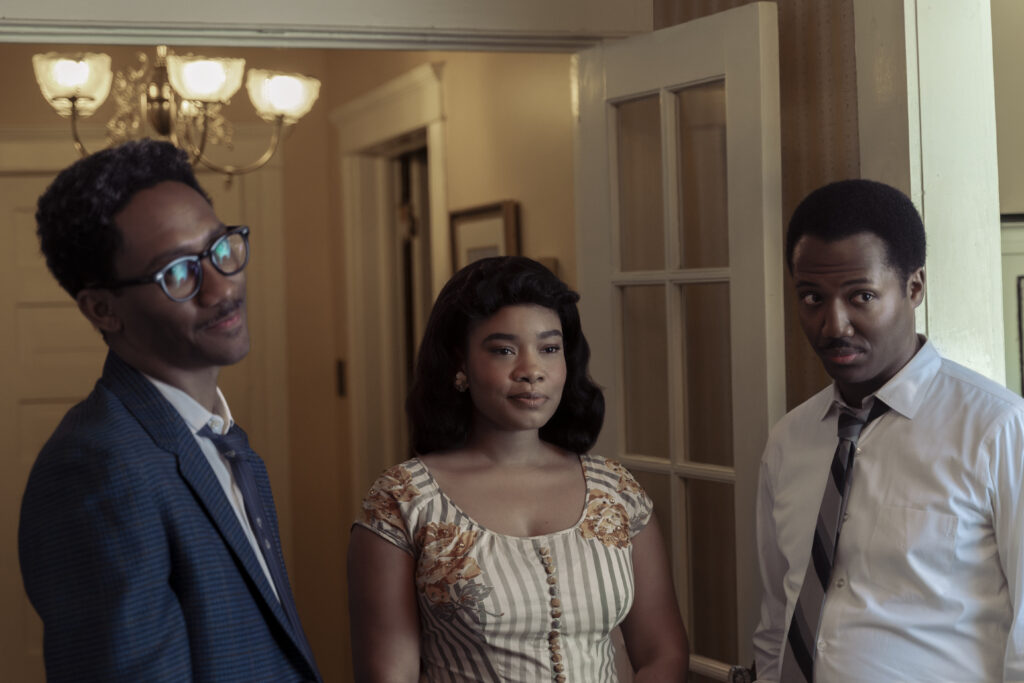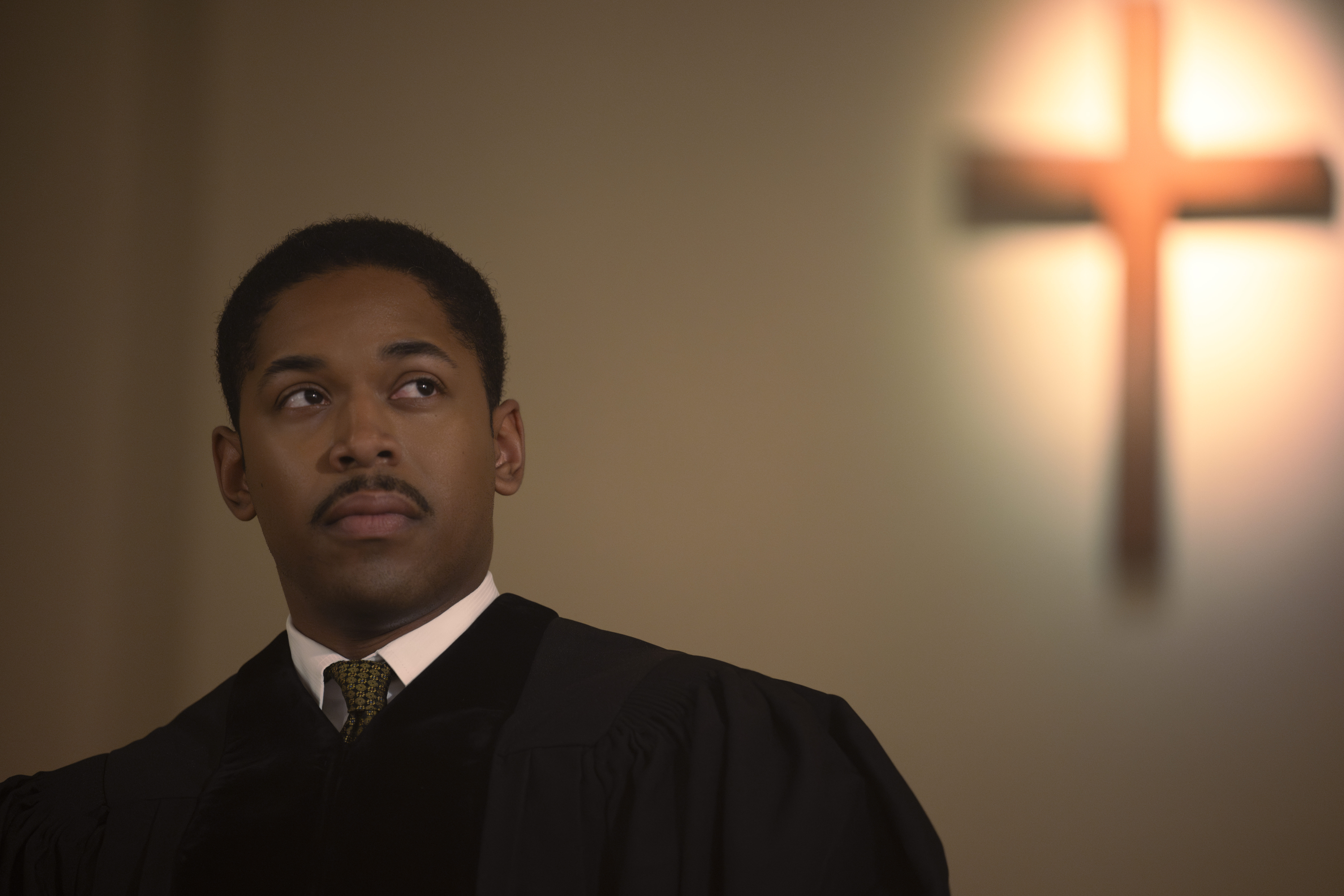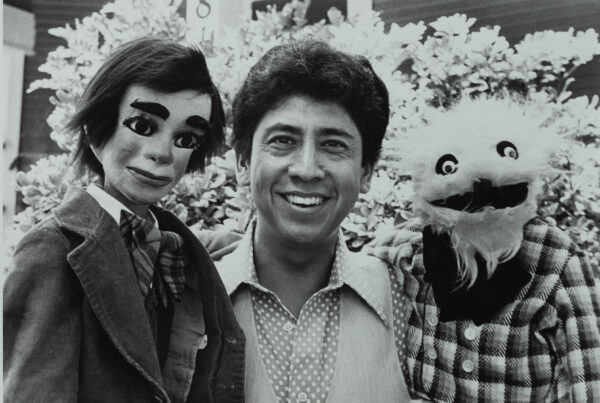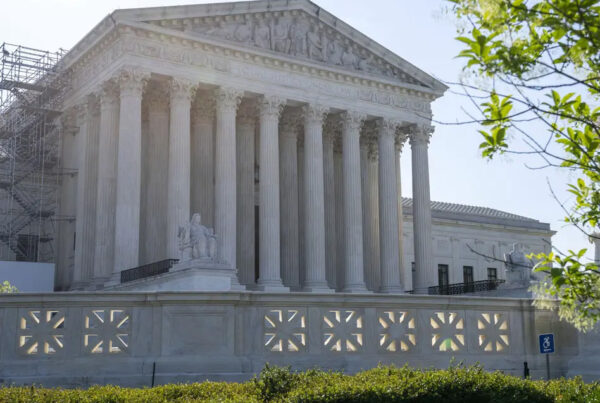The current season of Nat Geo’s biographical drama series “Genius” explores the lives and dueling philosophies of Dr. Martin Luther King Jr. and Malcolm X. The season is based on the book The Sword and the Shield: The Revolutionary Lives of Malcolm X and Martin Luther King.
Professor Peniel Joseph wrote the book. He is also the Barbara Jordan Chair in Ethics and Political Values at the University of Texas at Austin’s LBJ school and the founding director of the Center for the Study of Race and Democracy.
The new season premiered on the National Geographic Channel Feb. 1, 2024 and started streaming Feb. 2, 2024 on Disney+ and Hulu. The episodes will be released throughout the month.
Professor Joseph talked with Texas Standard about his book and the process of getting it made into a television series. Listen to the interview in the audio player above or read the transcript below.
This transcript has been edited lightly for clarity:
Texas Standard: Are you surprised that Nat Geo reached out to you to talk about turning this into a series?
Peniel Joseph: Oh, very. The creative process of seeing a book transformed into eight episodes and eight scripts, and the actors they chose, and the way in which they show the parallel lives of these two such significant icons of the 20th century has been really, really fascinating and made me a student of how something goes from the written page to a kind of television production.
Eight episodes, you say?
Yes. And it’s called “MLK/X,” and it really follows the spine of the book, which really narrates the way in which Malcolm X and Dr. Martin Luther King Jr. – they really lived around the same time. Malcolm X was born in 1925 in Omaha, Nebraska – Dr. King, 1929, in Atlanta, Georgia. And there’s so many pivotal moments in their lives – they sort of get married around the same time, but they have different experiences.
Malcolm X is in prison from 1946 to 1952, around the same time that Dr. King is finishing up Morehouse and Crozer Theological Seminary and later gets his Ph.D. at Boston University. We get an intimate portrait of their lives, which lets us see how they converge in so many different ways.
I want to hear what you have to say about some of the common misconceptions about these two powerful leaders and their philosophies toward change.
Certainly. The book’s title, “The Sword and the Shield,” speaks to exactly what you’re saying.
We usually think of Malcolm X as the political sword of the 1950s and 60s, sort of the avatar of the Black Power movement. Very angry. Somebody who was pro-violence, anti-white. And we look at Dr. King as the shield, the nonviolent shield.
There was a point in the 1950s people call Dr. King “America’s Gandhi.” And what the book shows, and I think this series shows, is that we put them in these little boxes as sword and shield, but they really are both.
Dr. King is somebody who thinks of nonviolence as something that’s coercive, powerful, and muscular. Malcolm X undergoes his own transition and transformation into really becoming this human rights activist who visits Africa and the Middle East. He takes the Hajj pilgrimage and becomes a Sunni Muslim, and really is quite a fascinating figure who says to people that he believes what Dr. King believes in. He’s just says that Dr. King doesn’t mind getting beat up, and I do. And so it’s very, very interesting what happens to them over time.

Malcolm X, played by Aaron Pierre, reads the Quran in prison in GENIUS: MLK/X.
Could you talk about the similarities between King and Malcolm X?
They’re both men of deep faith. Dr. King in the Christian Baptist faith tradition, social gospel tradition which really believes that we have to think of the biblical scriptures as something that applies to today.
Malcolm X is really raised initially as a Christian but undergoes his own experiences with juvenile delinquency. His father is murdered when he’s a young boy. The family is sort of split up and, really in jail, finds one iteration of the Islamic faith through the Nation of Islam.
Both of them really find their center in a faith in God and a faith in the whole idea of faith being something that you believe, even though there’s no evidence, it’s evidence of this unseen thing. So, I think their faith converges.
And even when they meet with each other, they call each other “reverend” and “minister” when they meet. So they’re winking at each other, but they also know and believe that, hey, this is a fellow preacher. This is a fellow minister. This is somebody who believes in that path, however imperfectly, of following, whether we’re going to call it “God” or “Allah.” But in that higher power.
There seems to have been respect. But was there tension in that relationship as well?
Absolutely. I think they undergo three different phases of their relationship.
One, they start off as political adversaries in the 1950s where Dr. King is criticizing the Nation of Islam and what Malcolm X is saying and saying Black supremacy is just as bad as white supremacy. People are sort of interpreting it as reverse racism.
Second phase is rivals by 1963. Malcolm X becomes one of the leading, really, civil rights activists in the country. He’s all over the place. John F. Kennedy is talking about him, Bobby Kennedy is talking about him, and they become these sort of rivals.
Malcolm X attends the March on Washington. He calls it a “farce on Washington,” but the show shows him in attendance, and he was in attendance, even though he fibs and tells reporters he was at a hotel in D.C. That’s not true. People saw him at the March on Washington, Malcolm X.
And by ’64 and early ’65, they really become each other’s alter egos even after that meeting on March 26, 1964. Malcolm sees King do a speech in Harlem on Dec. 17, 1964, after he’s won a Nobel Prize. And Malcolm visits Selma on Feb. 4 and 5, 1965. He’s on the same stage with Dr. King’s wife, and he tells Coretta Scott King, “I’m here to help your husband, to provide an alternative so the voting rights and all the things he wants to happen will happen. I’m not here to hurt him.”
And Dr. King, after Malcolm’s assassination, he writes a handwritten beautiful sort of letter and an elegy for Malcolm X saying how much he respected and admired him and how Malcolm X was turning a corner.
So it’s really interesting, the three phases of that relationship, from adversaries to rivals to really serving as each other’s alter egos – dual sides of the same revolutionary coin.
How do you feel about your book inspiring this new season of Nat Geo?
I feel very, very grateful. And it’s a huge blessing because when your work is able to get out to so many millions of people, that’s the whole point of being a teacher and a scholar and a storyteller.
But I’m really happy in our own time, there’s so much controversy and debate over issues of civil rights and democracy and race and identity in the United States and globally that we get to revisit these two figures, but we get to revisit them as human beings and not just as icons.
We see them as fathers, as husbands. Coretta Scott King and Dr. Betty Shabazz play a big role in this. We get to see Bayard Rustin, who was one of King’s main advisors, Black queer organizer. Ella Baker, who’s one of the King’s main advisors.
So we get to see all these different people and how history is shaped by individuals coming together to stand up for what they believe in. And we need that kind of belief now more than ever. And those two really personify that idea.

Griffin Matthews as Bayard Rustin, Weruche Opia as Coretta Scott King, and Hubert Point-Du Jour as Ralph Abernathy in GENIUS: MLK/X.
How involved were you in the production of this TV version?
I was in the writer’s room. I served as a consultant. I was able to visit the set. I was able to read the scripts and really, they took suggestions as well. So it was really very interesting to see how they turned a book in history into a dramatic series. So it was really a wonderful process to be a part of.
If you found the reporting above valuable, please consider making a donation to support it here. Your gift helps pay for everything you find on texasstandard.org and KUT.org. Thanks for donating today.















